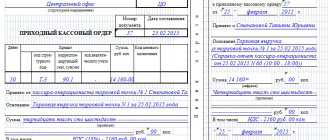Timely payment of taxes is the responsibility of every legal entity and individual conducting business activities. A fine for non-payment of taxes is a punishment for failure to fulfill the obligations established by the Tax Code of the Russian Federation for taxpayers. Failure to fulfill this obligation is an offense which may be punishable by:
- criminal liability;
- administrative punishment;
- tax liability.
The type of liability provided in 2021 for non-payment of taxes depends on the type of violation, as well as the type of entity that committed such a violation. However, in all cases, a person can bear only one type of liability, for example, if tax or administrative is imposed, criminal liability is no longer assigned. Also, being held liable for non-payment of taxes does not relieve an individual or legal entity from the need to pay off its tax debt.
Tax fines are the most common form of penalty that applies to individuals or legal entities.
Types of taxes
There are significant differences between the taxation of citizens of a country and organizations.
Basically, individuals are concerned with contributions on their existing property and profits. Personal income tax (NDFL) is paid by the employer.
Mandatory monetary contributions to the treasury of the powers include the following:
- to the ground;
- transport;
- on property.
Every resident of the country who officially owns real estate is required to pay a property fee. To do this, he applies to the Federal Tax Service (FTS) and a personal account is registered for him. An account is also opened to which he will transfer finances. The person is notified in writing by sending information by mail to the place of registration.
If a person does not contact government authorities, he will not be informed about the assessment of taxes.
NOTE! Failure to report to the Federal Tax Service does not eliminate mandatory contributions and penalties.
Individual entrepreneurs, LLCs and legal entities make the following contributions:
- Personal income tax for each employee;
- from all receipts;
- for added value;
- for transport;
- land;
- insurance premiums.
Penalties for evading mandatory payments to the state will not increase this year, however, control by the civil service will remain strict.
The legislative framework
The law of the Russian Federation provides for the payment of contributions to the state by all persons, regardless of the size of their income.
Refusal to comply with or ignorance of the relevant legal norms regulated by the Tax Code of the Russian Federation leads to monetary sanctions or even imprisonment. The Code of Administrative Offenses and the Criminal Code of the Russian Federation provide for various measures of influence depending on the severity of the crime. The legal liability of persons of any type of activity differs significantly from each other. This depends on the different amounts of contributions they make.
The Tax Code defines the following concepts of “tax evasion”:
- refusal to pay the amount in full;
- submitting the report later than the agreed date;
- partial payment;
- erroneous payment calculation (independent);
- reduction in base rates.
The latter type applies to all citizens.
A special case of individual entrepreneur reporting
A special place among declarations is occupied by reporting on UTII. The system is used when conducting certain areas of activity. If an entrepreneur has switched to UTII, but does not conduct business, zero reporting is not submitted. Taxation is based on physical indicator data. The tax is levied only during the period of application of UTII and does not depend on revenue.
Reporting on UTII is submitted from the date of registration until the date of filing the notice of termination of its application. If the taxpayer does not file a return upon actual termination of activity, but before filing a notice, a fine will be imposed on the individual entrepreneur.
Types of punishment
All citizens of the country who are over 16 years old can be held accountable. There are these types:
- administrative - in this case, the person will be forced to repay the debt and the amount of the fine imposed for non-payment of taxes;
- criminal - used extremely rarely, provides for imprisonment for systematic evasion of the law and for refusal to transfer finances in large quantities;
- tax - interest and penalties are assessed.
The types of liability for tax evasion depend on the type of violation and who committed it.
ATTENTION! Only one penalty can be imposed.
Administrative
Only officials are involved in this type of control.
Individual entrepreneurs and ordinary citizens are not subject to offenses under the Code of Administrative Offences. Read also: Benefits on insurance premiums in 2021
Punishments for non-payment of taxes according to the Administrative Code are imposed for the following offenses:
- failure to meet reporting deadlines - a warning or fines for non-payment of taxes range from 300 to 500 rubles (Article 15.5 of the Administrative Code);
- violation of accounting - monetary sanctions in the amount of 5–10,000 rubles. If repeated - from 10 to 20 thousand rubles;
- untimely registration - the law allows 10 days after registration of the organization. In this case, you will need to compensate the penalty from 500 to 1000 rubles.
Refusal to provide the necessary documents to an employee of the Federal Tax Service will cost the violator from 500 to 1000 rubles.
We must remember! Before filing claims, a protocol of violations must be drawn up.
Article 15.5 of the Code of the Russian Federation on Administrative Offenses “Violation of deadlines for submitting a tax return (calculation of insurance premiums)”
Tax obligations
The legal framework includes such offenses:
- global distortion of the shown amounts of income and expenses (Article 120 of the Tax Code of the Russian Federation) - a fine of 10 to 30 thousand rubles is provided;
- lack of explanations for personal income tax and failure to make deductions at the agreed time - the amount of the fine for non-payment of such taxes is 20% of all accruals (Article 123 of the Tax Code of the Russian Federation);
- partial payment due to a decrease in the tax base;
- activities of an individual entrepreneur or organization without registration with the Federal Tax Service - a fine for non-payment of taxes for individual entrepreneurs and legal entities in this case is imposed in the amount of 10% of income for the unaccounted period, but not less than 40 thousand rubles;
- failure to submit a declaration - a penalty of 5% of the amount of income is imposed;
Refusal to provide documents to the tax service is punishable by sanctions - 20% of the tax amount.
Article 120 of the Tax Code of the Russian Federation “Gross violation of the rules for accounting for income and expenses and objects of taxation (bases for calculating insurance premiums)”
Article 123 of the Tax Code of the Russian Federation “Failure of a tax agent to fulfill the obligation to withhold and (or) transfer taxes”
Criminal penalty
According to the law, they can be subject to the strictest sanctions for systematic violations.
Persons who were authorized to transfer finances for the payer and did not perform such actions are involved.
Article 198 of the Criminal Code of the Russian Federation
This article states that in the case of huge debt, the fine for non-payment of such taxes by a legal entity is 100-300 thousand or restriction of freedom for a period of up to 12 months.
Article 198 of the Criminal Code of the Russian Federation “Evasion of an individual from paying taxes, fees and (or) an individual paying insurance premiums from paying insurance premiums”
Article 199 of the Criminal Code of the Russian Federation
Failure to make a contribution to the budget for profit or VAT in accordance with this article applies to chief accountants and directors of enterprises. If the responsibilities of ordinary personnel include accounting, then they will also be responsible before the law.
Article 199 of the Criminal Code of the Russian Federation “Evasion of taxes, fees payable by an organization, and (or) insurance premiums payable by an organization paying insurance premiums”
The procedure for applying tax sanctions to individual entrepreneurs
The legality of conducting activities is established upon registration of an individual entrepreneur. Conducting commercial activities without official registration is prohibited by law.
The signs of doing business are:
- Production, use, sale of property and material assets for the purpose of making a profit.
- Carrying out transactions with drawing up contracts.
- Maintaining records of transactions.
Conducting activities without state registration entails punishment under the Administrative Code of the Russian Federation. The actions have consequences for the person in the form of a fine of up to 2 thousand rubles. The minimum amount of sanctions is 500 rubles, but almost always the maximum amount is charged.
Violation of the registration deadlines (Article 116 of the Tax Code of the Russian Federation) entails a fine from the Federal Tax Service Inspectorate. The amount is 10 thousand rubles if there is no income. If revenue was received in an unregistered period, the amount of sanctions increases to 10% of its value and is charged in an amount of at least 40 thousand rubles.
Conducting the activities of an individual entrepreneur without obtaining a license for types that require licensing also entails punishment under the Code of Administrative Offenses. If the results of activities cause damage to the state or individuals, sanctions can reach 300 thousand rubles. Based on the results of determining the damage, a person may be held criminally liable.
Important! It is possible to prevent the imposition of fines in the course of conducting commercial activities of an individual entrepreneur by complying with the law. To prevent receiving sanctions, you need to study the provisions of laws and regulations or contact tax and accounting specialists.
Liability of individuals
All citizens must comply with regulations and bills regarding the payment of contributions. If it is violated, the state will hold them accountable. It varies depending on the type of tax:
- for profit - employers transfer funds for employed citizens. If the income for the year does not exceed 512,000 rubles, then the rate is 13%. For high incomes - 23%. This includes fines for non-payment of taxes for renting out an apartment, selling a car or real estate. Before April 1, it is annually necessary to submit a declaration to government services;
- punishment for non-payment of property tax for individuals, which must be paid before the beginning of December next year, consists of penalties (the amount of debt is multiplied by the number of days) and penalties (20% of the debt);
- the fine for non-payment of transport tax by an individual is a fine, which is proportional to the number of overdue days, and property and transport are also seized;
- Responsibility for non-payment of land tax by an individual depends on the region of the country. Every day after delay, a penalty and a fine of 20-40% of the debt amount starts.
The state can collect all fines and penalties due for non-payment of any taxes only through the court.
Late submission of reports
Based on the results of the income received or in case of taxation with a fixed payment amount, the individual entrepreneur must submit declarations.
Reporting is submitted:
- Within the deadline established for each declaration form separately. For example, the deadline for UTII is the 20th of the month following the end of the quarter.
- On forms adopted for the reporting period. If an individual entrepreneur submits declarations of an unspecified form, the reporting is not considered submitted.
You can find out which forms are relevant in the reporting period on the official website of the Federal Tax Service or from tax consultants. When submitting reports on an outdated form, the inspector has the right not to accept the document. What to do if reports are submitted on the last day of submission and there is no time for rework? The declaration must be sent by mail and then the correct document must be submitted.
If the individual entrepreneur does not operate, it is necessary to submit “zero” declarations in which there is no data. Reporting with missing data is submitted by individual entrepreneurs in the absence of movement of material assets, receipt of revenue and other indicators characterizing activity. For failure to submit declarations on time with missing data, a fine of 1 thousand rubles is imposed.
In cases where a situation arises with failure to submit reports for which the amount payable has been accrued, a fine will be charged from the accrued tax. The amount of sanctions is 5% of the amount of the tax liability, but not more than 30%.
Companies with a headcount above a certain limit must submit declarations electronically. For violation of the reporting procedure, a fine of 200 rubles is imposed.
Reasons for holding legal entities accountable
Who is responsible before the law in organizations is indicated in internal documentation.
An employee who performed duties for a colleague who is on vacation will be held fully accountable before the law. Read also: Register of unscrupulous suppliers
There are the following collection methods:
- fines;
- forced labor for up to 5 years;
- arrest;
- restriction of freedom up to 6 years;
- a fine for non-payment of personal income tax in the amount of 20% of the debt;
- deprivation of the opportunity to work in a leadership position.
More stringent measures apply to a group of people than to an individual.
Accrual of penalties
Simplified taxation system for individual entrepreneurs - what taxes need to be paid
Typically, if the return is filed on time, the tax office only charges penalties on the unpaid portion. Penalties are calculated as follows:
- If we consider what the fine is for an individual entrepreneur if he does not pay the tax on time, then if the delay is no more than 30 days, the required amount is multiplied by the Central Bank rate. The resulting number is then divided by 300 and multiplied by the number of days overdue.
- If there is a delay of 31 days or more, the underpaid amount is divided by 150, multiplied by the Central Bank rate, and by the number of days after the thirty-first day inclusive, added with the amount for 30 days of delay.
- The Central Bank rate as of July 17, 2021 is 7.5%, it can always be clarified on the website cbr.ru.
- Days are counted as follows: starting from the date following the one when payment was required until the date of payment of penalties, inclusive. This applies to taxes and contributions to the Funds - Pension Fund, Social Insurance Fund.
Tax return
Example: the underpayment of tax amounted to 1000 rubles. The last day for payment was June 30, and the missing amount was paid only on July 31. In 30 days (1000*7.5%*30)/300=7.5 rub. And for the last, thirty-first day, (1000*7.5%*1)/150=0.5 rub. We add up these amounts and get 8 rubles. It's usually easier to use online calculators so you don't have to count by hand.
The BCC for paying penalties differs from the BCC for taxes. Therefore, you need to fill out the payment form correctly so that you don’t have to deal with this additionally later.
Note! In 2021, amendments were adopted to the Tax Code stating that penalties cannot exceed the amount of arrears. That is, if 100 rubles were underpaid to the budget, more than 100 rubles cannot be charged as a penalty.
Is there a statute of limitations for tax violations?
It happens that a person hopes that his debts will be forgotten and he won’t have to pay them. Don't count on it. The statute of limitations is of primary importance. It is counted from the day the tax violation was committed, or from the end of the tax period when the violation was committed. If three or more years have passed before the decision to prosecute, the person cannot be prosecuted.
For example, the tax base was underestimated in the reporting, and tax was not received in the amount of 300 rubles. The responsible person, that is, the individual entrepreneur, cannot be held liable if three years have passed. But if a person interfered with an inspection by the fiscal authorities, then the statute of limitations is suspended.
Additional Information! When the liability is criminal, the statute of limitations is 2 years. But in June 2019, the Supreme Court proposed to abolish the statute of limitations for tax crimes. It remains to be seen whether this will become the norm.
Statute of limitations
Thus, when opening an individual entrepreneur, it is better to be sure in advance that the future enterprise will meet all payments. After all, liability is provided not only for missing the payment date, but also for filing a declaration late.
Useful links on the topic “Non-payment or incomplete payment of taxes (fees)”
- Personal income tax 15%. Progressive scale
- Tax on interest on deposits
- Tax control of accounts
- Why are benefits declarative in nature?
- Personal income tax on inheritance
- Tax liability for failure to submit documents
- Errors when filling out tax return 3-NDFL
- Confirmation of Russian tax resident status
- What is a tax offense, the procedure for attracting, mitigating and aggravating circumstances
- How to get a deferment (installment plan) for paying taxes
- Find out the address of your tax office:
- in St. Petersburg (addresses, telephone numbers, websites, operating hours of the regional Federal Tax Service);
- in Moscow (addresses, telephone numbers, websites, operating hours of regional Federal Tax Service);
- other cities of Russia
- Tax audits
- Tax liability for failure to submit a tax return
- Tax liability for failure to appear when called to the tax authorities
- Directory of fines of the Tax Code of the Russian Federation





